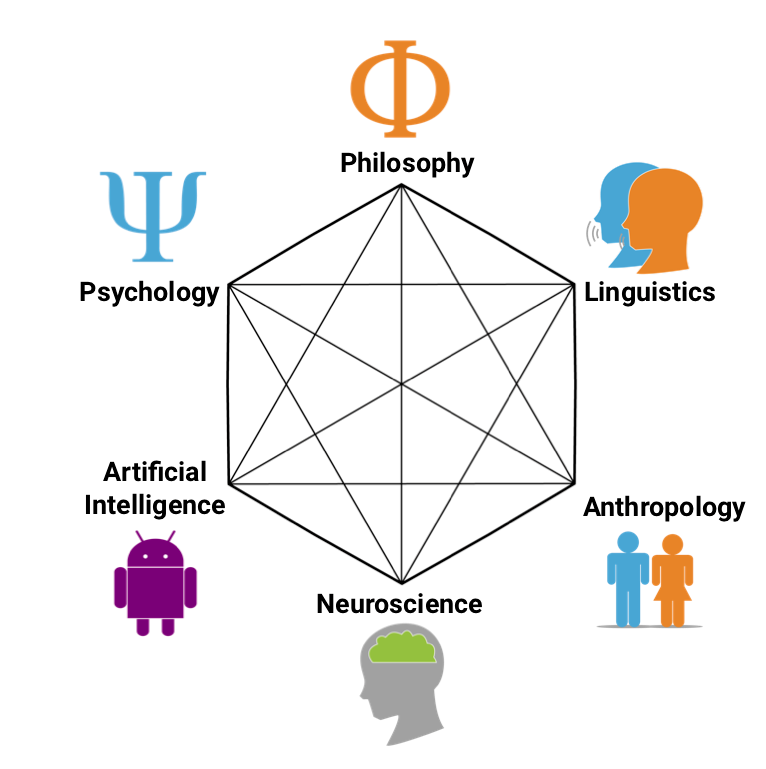Cognitive science is the scientific study of the mind. It views the mind as an information processor. Sensory input is processed by different processing systems that alter the information in systematic ways. The aim of cognitive science research is to specify the processes and structures that make cognition possible.
Cognitive science takes an interdisciplinary approach to understanding the mind. It involves a combination of psychology, philosophy, computer science, anthropology, linguistics, and neuroscience. How can one field combine such contrasting disciplines? Each discipline studies the mind from a different perspective. Psychology primarily focuses on the behaviors and mental attitudes governing the mind. Philosophy forms the foundation of how to think and provides the theoretical framework to cognitive science. It trains the scientist in the construction of clear ideas and making convincing arguments. Computer science views the brain as a computational system. It hypothesizes that the brain has interconnected nodes and is an input-output system just like a computer. Anthropology focuses on the social aspect of the mind and how cognition varies across cultures. Linguistics views language as organized, algorithmic, and systematic. Linguistics is essential to cognitive science as language is an algorithmic system unique to human beings. Studying the origin and rules of language can give us more of an insight into the human brain. And finally, neuroscience studies the physical brain and gives proof to the various theories of cognitive science. We understand the physical origins of cognitive processes through neuroscience and can come up with treatments for brain disorders. These six sub-fields of cognitive science are illustrated in the figure below.

So why should you study cognitive science? Cognitive science offers perspectives of the mind from various points of view. It can offer a broad base of knowledge about the brain. Neurobiology being purely physical, might not satisfy your desire of learning about the mind. On the other hand, psychology doesn’t focus on where the mind’s processes occur. Cognitive science bridges these six fields together to provide a complete view of the brain and mind. Being highly interdisciplinary, cognitive science offers a variety of jobs in each of these six sub-fields. There is a huge market for cognitive science graduates in the field of artificial intelligence and human-computer interactions. You can become a linguistic analyst and focus on speech synthesis and voice recognition. You can pursue a Ph.D. in psychology or neuroscience and go into academia. You can also become a psychologist and work with patients. Data analysis, telecommunications, intelligence analysis, multimedia design, law, marketing, and software design are other possible career options.
Cognitive science is a relatively new field but is certainly a thriving one. Its interdisciplinary nature will give you a strong foundation of the brain and mind and prepare you for a variety of careers. If you’re interested in any of these six fields or the mind in general, I suggest that you consider cognitive science as a major in college!